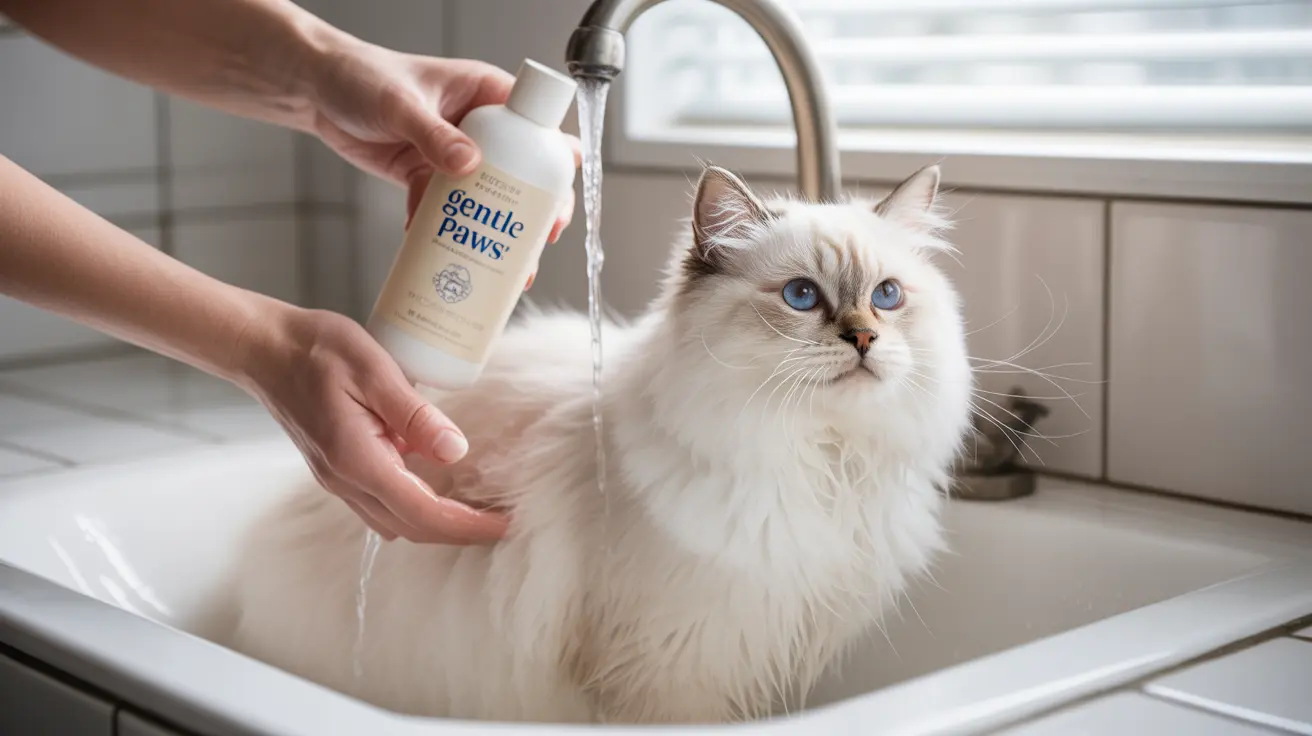When Should You Actually Bathe Your Cat?
Cats are naturally excellent self-groomers, equipped with specialized tongues that keep their coats clean and healthy. However, certain situations may require human intervention:
- Exposure to hazardous substances (oil, paint, or chemicals)
- Heavy soiling that the cat cannot clean independently
- Medical conditions requiring therapeutic baths
- Senior cats or obese cats who struggle with self-grooming
Understanding Dawn Dish Soap's Effects on Cats
Dawn dish soap contains powerful surfactants that effectively break down oils and grease. While this makes it excellent for cleaning dishes, these properties can be problematic for your cat's sensitive skin:
Benefits in Emergency Situations
- Quickly removes oil-based contaminants
- Effectively kills adult fleas on contact
- Readily available and affordable
Potential Risks
- Strips natural protective oils from the skin and coat
- Can cause skin dryness and irritation
- May trigger allergic reactions
- Risk of soap residue ingestion during self-grooming
Safe Alternatives for Cat Bathing
Instead of reaching for Dawn, consider these cat-friendly cleaning options:
Pet-Specific Shampoos
- pH-balanced for feline skin
- Contains moisturizing ingredients
- Free from harsh chemicals and artificial fragrances
Spot Cleaning Solutions
- Pet-safe grooming wipes
- Damp microfiber cloths
- Waterless cat shampoos
When Dawn Might Be Appropriate
There are rare circumstances where using Dawn dish soap might be necessary:
- Emergency decontamination of toxic substances
- One-time flea treatment when pet-specific options aren't immediately available
- Wildlife rescue situations (under professional guidance)
Professional Recommendations for Cat Bathing
Veterinarians and pet care experts recommend:
- Limiting baths to when absolutely necessary
- Using cat-specific cleaning products
- Maintaining regular brushing routines
- Consulting with a vet before starting any bathing routine
Frequently Asked Questions
Can I safely bathe my cat with Dawn dish soap for flea control or emergencies?
Yes, but only in emergency situations or for one-time flea treatment. Dawn should not be used regularly as it can dry out your cat's skin and strip essential oils from their coat.
What are the risks of using Dawn dish soap regularly on my cat's skin and coat?
Regular use of Dawn can lead to dry skin, irritation, allergic reactions, and disruption of the natural oil balance protecting your cat's skin and coat. It may also cause your cat to develop skin sensitivities or infections.
How should I properly bathe a cat using pet-specific shampoo instead of Dawn?
Use lukewarm water, pet-specific shampoo, and work from neck to tail. Avoid getting water in their ears and eyes. Rinse thoroughly and dry your cat completely with warm towels in a draft-free area.
When is it necessary to give a cat a bath, and how often should it be done?
Cats typically only need baths when they're heavily soiled, exposed to toxic substances, or have medical conditions requiring therapeutic bathing. Most healthy cats don't need regular baths unless directed by a veterinarian.
What are good alternatives to Dawn for cleaning small messes or spot cleaning my cat?
Use pet-specific grooming wipes, waterless cat shampoos, or a damp microfiber cloth for spot cleaning. These options are gentler on your cat's skin and maintain their natural coat oils.
While Dawn dish soap might seem like a convenient solution for bathing your cat, it's best reserved for genuine emergencies. Focus on regular brushing and using cat-specific products when cleaning is necessary. Your cat's skin health and overall well-being will benefit from this more thoughtful approach to grooming.






